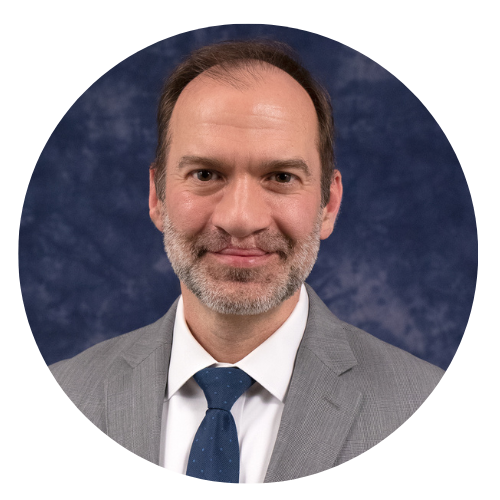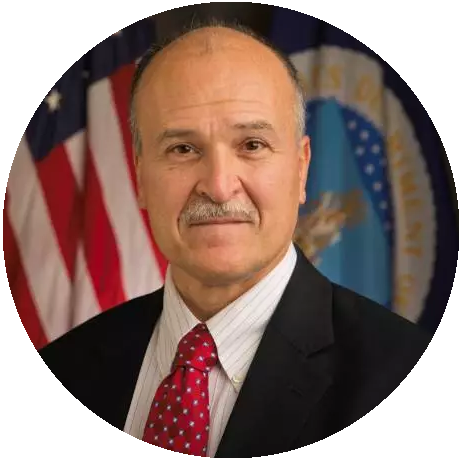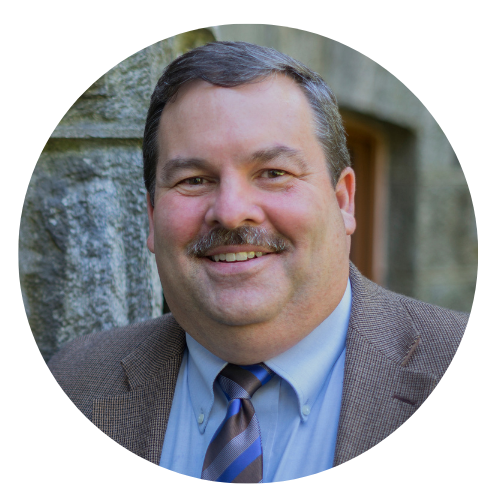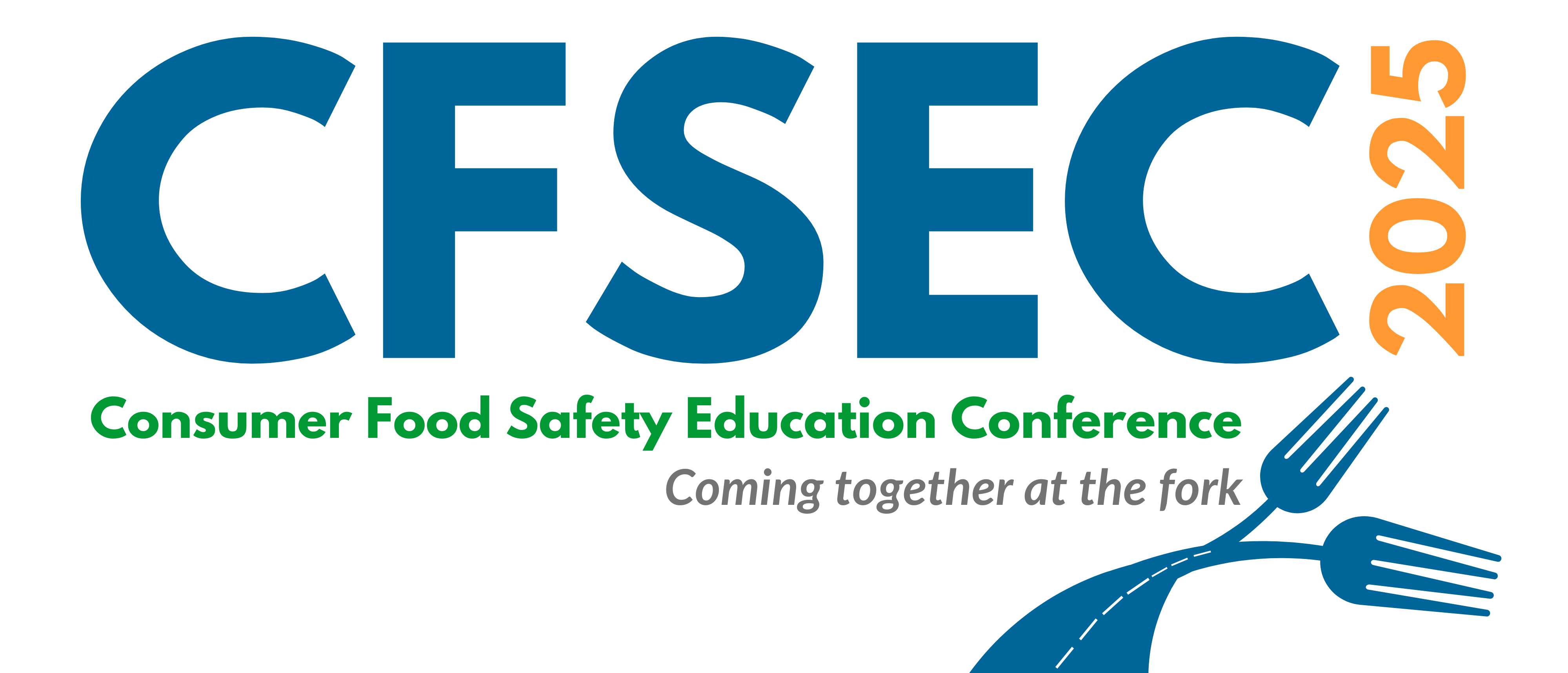More details coming soon. Sign up for our e-newsletter to stay up-to-date on all conference information!
In the meantime, check out the 2023 Consumer Food Safety Education Conference Speakers below:
2023 Consumer Food Safety Education Conference Speakers

Mitzi Baum
Chief Executive Officer
Stop Foodborne Illness
Mitzi Baum joined the team at Stop Foodborne Illness as the chief executive officer in May 2019. She is motivated by the mission to create a new strategy for Stop and its constituency that will drive change through advocacy, collaboration and innovation.
Prior to beginning her tenure at Stop, Mitzi cultivated a 23-year career at Feeding America beginning as a network services representative rising to the senior level position of managing director of food safety. As managing director of food safety, Mitzi guided the continued development of food safety initiatives including development and execution of the food safety strategic plan; oversight of third-party food safety audit program; food safety educational summits; development of food safety resources; and coordination with donors and regulatory agencies to support food donations.
Mitzi holds a Master of Science in Food Safety and a certificate in Food Law from Michigan State University. She earned her Bachelor of Science degree from Bowling Green State University, Bowling Green, OH. She has earned certificates in Non-Profit Management from the University of Chicago, Quality Management from DePaul University and Food Safety Management from Cornell University.
She is a certified seafood HACCP instructor and is a certified PCQI. Mitzi is a member of the International Association of Food Protection, the Conference for Food Protection and the Association of Food and Drug Officials.

Dr. Cynthia Baur
Endowed Chair and Director
Horowitz Center for Health Literacy
School of Public Health
University of Maryland
Dr. Cynthia Baur is a health literacy and health communication expert focused on improving health literacy at the individual, family, community and organizational levels. She directs the University of Maryland Horowitz Center for Health Literacy, the nation’s first academic health literacy center, and is a professor in the Department of Behavioral and Community Health.
In 2022, Dr. Baur and other advocates worked with Maryland Delegate Joseline Peña-Melnyk, who sponsored Maryland HB1082, to designate the Horowitz Center as the state’s consumer health information hub. Dr. Baur is the Principal Investigator on multiple federal and state funded projects on health literacy, clear communication, digital health, diabetes prevention and organizational health literacy improvement.
During the COVID-19 pandemic, the Center provided communications support to Maryland local health departments and coalitions, and pre and post-pandemic, the Center supports the Maryland Department of Health and local health departments on the state’s diabetes action plan. Dr. Baur provides training and expert advice to local, state and national committees and initiatives.
Before coming to UMD, she served for almost 20 years in the federal Office of Disease Prevention and Health Promotion and the Centers for Disease Control and Prevention (CDC), U.S. Department of Health and Human Services. She was CDC’s Plain Language and Health Literacy Lead from 2011 to 2016.
Dr. Baur earned a Ph.D. in Communication from the University of California San Diego.

Dr. Conrad Choiniere
Director of the Office of Analytics
and Outreach
Center for Food Safety and
Applied Nutrition
U.S. Food and Drug Administration
Dr. Conrad Choiniere is the Director of the Office of Analytics and Outreach at the U.S. Food and Drug Administration’s (FDA) Center for Food Safety and Applied Nutrition. Dr. Choiniere provides executive leadership for a broad portfolio of scientific and regulatory functions including risk and decision analysis, social and behavioral sciences, epidemiology, biostatistics and informatics, education and outreach, and food defense.
He currently co-leads a core element of FDA’s New Era of Smarter Food Safety focused on fostering and supporting Food Safety Culture across the food system. He also chairs FDA’s Toxic Elements Working Group which prioritizes the agency’s efforts to reduce exposures to lead, arsenic, and other heavy metals from foods to the greatest extent feasible.
Dr. Choiniere has a Ph.D. in Agricultural and Resource Economics from the University of Maryland and a Bachelor of Science in Chemical Engineering from Johns Hopkins University.

Dr. José Emilio Esteban
Under Secretary for Food Safety
Office of Food Safety
Food Safety and Inspection Service
U.S. Department of Agriculture
Dr. José Emilio Esteban was sworn in as under secretary for food safety on January 4, 2023. In this role, Dr. Esteban leads the Office of Food Safety at the U.S. Department of Agriculture (USDA), overseeing the Food Safety and Inspection Service (FSIS), which has regulatory oversight for ensuring that meat, poultry and egg products are safe, wholesome and properly labeled.
In August 2018, he was appointed FSIS chief scientist. In this capacity, Dr. Esteban served as the primary scientific advisor on matters of public health and food safety that affect the mission of the agency, with primary responsibility for scientific initiatives within the FSIS Office of Public Health Science (OPHS). Dr. Esteban’s efforts directly supported FSIS’ Strategic Goals 1: Prevent Foodborne Illness and Protect Public Health, and 2: Transform Inspection Strategies, Policies and Scientific Approaches to Improve Public Health.
In 2002, Dr. Esteban joined OPHS as the director of the Western Laboratory. In this role, he directed the implementation of the sampling program and was responsible for the facility, equipment and personnel infrastructure. In 2008, he was appointed as the FSIS science advisor for laboratory services and then as executive associate for laboratory services, where he harmonized the operation of all three FSIS laboratories, maintained operations to meet with the ISO17025 standard and coordinated emergency response.
Prior to joining FSIS, Dr. Esteban worked in several positions at the Centers for Disease Control and Prevention (CDC). From 1994 to 2002, he was as an epidemic intelligence service officer; a staff epidemiologist in the National Center for Environmental Health; and an assistant director for the CDC Food Safety Office.
He received his doctorate in veterinary medicine from Mexico’s Universidad Nacional Autonoma de Mexico, a Master of Business Administration from the Panamerican Institute, and a Master of Preventive Veterinary Medicine, as well as a doctorate in epidemiology from the University of California at Davis.

Dr. Ellen Evans
Research Fellow
ZERO2FIVE Food Industry Centre
Cardiff Metropolitan University
Dr. Ellen Evans is a Research Fellow at the ZERO2FIVE Food Industry Centre. As a qualified professional chef, and after completing a Ph.D. focusing on the food safety risks associated with listeriosis among older adults at Cardiff Metropolitan University, Dr. Evans has conducted numerous cognitive and behavioral food safety research projects. The relationship between people and food fascinates her. Dr. Evans states that she is intrigued by the influence of knowledge and perceptions upon behavior, and the impact this has on food safety. This interest spans from food handlers in the food sector through to the consumer in the domestic environment. Consequently, she is involved with innovative research utilizing novel research technologies regarding numerous critical areas of food safety research including consumer food safety in the domestic setting; food safety culture and compliance in the food manufacturing industry and food service sector, and; food safety education and communication in healthcare settings. Dr. Evans is particularly active with the International Association for Food Protection and is past president of the UK Association for Food Protection. She attended the 2019 Consumer Food Safety Education Conference, and she’s looking forward to participating again this year.

Dr. William K. Hallman
Department of Human Ecology
Graduate Faculty
Department of Nutritional Sciences
Bloustein School of Planning
and Public Policy
Rutgers University
Dr. William K. Hallman is a professor and Chair of the Department of Human Ecology and a member of the graduate faculty of the Department of Nutritional Sciences, and of the
Bloustein School of Planning and Public Policy at Rutgers, the State University of New Jersey.
He is a 1983 graduate of Juniata College in Huntingdon, Pennsylvania and earned his Ph.D. in
Experimental Psychology from the University of South Carolina in 1989. His scholarship has
focused on numerous issues concerning food, health, technology, and the environment. These
include studies of perceptions, communications, and behavior change strategies regarding food safety, foodborne illness outbreaks, food recalls, food insecurity, food labeling and nutrition, exposure to environmental contaminants, infectious and non-infectious diseases, unexplained symptom syndromes, coastal storm warnings, and preventive health behaviors. He has also conducted extensive studies of consumer perceptions and acceptance of new food technologies, including genetic modification, gene editing, nanotechnology, animal cloning, aquaculture, and cell-based meat, poultry, and seafood.
Dr. Hallman is a Fellow of the Society for Risk Analysis, has served as the Director of the
Rutgers Food Policy Institute, and as Chair of the FDA’s Risk Communication Advisory
Committee. He recently served as a U.S. Delegate to the Asia-Pacific Economic Cooperation
(APEC) Food Safety Cooperation Forum, which published the APEC Food Safety Risk
Communication Framework and Associated Guidelines. He is a contributor to the Risk
Communication Applied to Food Safety Handbook, published by the Food and Agriculture
Organization of the United Nations and the World Health Organization. He is also a contributor
to Communicating Science Effectively, A Research Agenda, published by the United States
National Academies of Science, Engineering, and Medicine (NASEM) and currently serves as a
member of the NASEM Standing Committee on Advancing Science Communication and as Co-
Chair of the NASEM Climate Communications Initiative.
Dr. Hallman serves on the Executive Committee of Rutgers Against Hunger (RAH) which he
helped found in 2008 and founded the New Brunswick Community Farmers Market (NBCFM)
and its associated community gardens in 2009. The NBCFM provides access to affordable, fresh, nutritious, locally grown produce to food insecure residents of New Brunswick and surrounding communities..

Dr. Shauna C. Henley
PFSE Board Member
Dr. Shauna C. Henley is a family and consumer sciences educator with the University of Maryland Extension. She works in the Northern Maryland Cluster (Baltimore County, Harford County, Carroll County, and Baltimore City), delivering programs that center on nutrition, food safety, and physical activity. Dr. Henley has been involved with teaching food preservation workshops throughout the state, as part of the “Grow It, Eat It” series.
Dr. Henley’s current work, focuses on nutrition and food safety education for community members. Her more current teaching activities involve GAP, FSMA grower training, food entrepreneurship with Food for Profit, as well as bridging consumer knowledge and behavior gaps with produce safety. Dr. Henley’s previous work focused on interdisciplinary research to identify a unique and unsafe poultry mishandling practice among minority racial and ethnic consumers. The unsafe behavior identified to be addressed in a food safety education campaign, “Don’t Wash Your Chicken!,” receiving national attention on NPR, Nightly News, Slate blog, the TODAY show, ABC’s the CHEW, ESPN’s Pardon the Interruption, and many other news outlets. Creating the educational materials was in collaboration with New Mexico State University.
Dr. Henley’s master’s research focused on investigating rural Vermont, and the food environment and cooking practices as an implication for health. This was part of a larger ethnographic study looking at the urban, suburban, and rural food environment.
She earned her B.S. in Biology at Muhlenberg College, an M.S. in Nutrition & Food Science at the University of Vermont, and her Ph.D. in Biology with a concentration in Human Nutrition from Drexel University.

Dr. Devlon Jackson
Assistant Research Professor
Behavioral and Community Health
University of Maryland
Dr. Devlon Jackson is a health communication scientist who examines how digital health can improve the health of vulnerable populations. She explores how consumers access and use these tools within and outside clinical settings and how providers use these tools to improve care. Within this work, Dr. Jackson identifies communication inequalities contributing to access and use. She also understands that mental health impacts physical wellness; therefore, she assesses how digital health can support mental wellness. Dr. Jackson earned a Master of Public Health, Health Promotion and Disease Prevention at Florida International University. She earned her Ph.D. in Communications and Culture, Health Communication at Howard University.

Dr. Von Nguyen
Clinical Lead for Population Health
Google
Dr. Von Nguyen is the Clinical Lead for Population Health at Google where he supports the development of products designed to improve health.
Dr. Nguyen trained as an epidemiologist in the CDC’s Division of Foodborne, Waterborne, and Environmental Diseases working on enteric disease outbreaks in the U.S. and around the world. He moved on to lead the CDC’s Policy and Strategy Office and worked as a Senior Advisor at the Center for Medicare and Medicaid Innovation focused on health policy, public health, and delivery system reform.
More recently, Dr. Nguyen was the Chief Medical Officer at Blue Cross North Carolina. He is a primary care physician and completed his internal medicine training at Columbia University.
Dr. Nguyen earned a Master of Public Health/International Public Health at the University of Texas Health Science Center at Houston. He earned his M.D. at UT Southwestern Medical Center.

Howard Popoola
Conference Co-Chair
Vice President Corporate Food Technology and Regulatory Compliance
The Kroger Company
Howard Popoola serves as Vice President of Corporate Food Technology and Regulatory Compliance of The Kroger Company. Popoola started at Kroger in January 2017.
Popoola develops and oversees successful programs, standards and processes across large and complex food product lifecycles and supply chains.
He is a pioneer in food safety, quality and regulatory compliance executive, who has mitigated risks and generated positive brand images through highly effective leadership in food safety, non-food product safety, quality, and associated operating standards and compliance programs at leading food service distributors.
Popoola’s educational background includes a Master of Science degree in Microbiology, an Advanced Master’s Certificate in Integrated Supply Chain Management, and numerous industry certifications and memberships.

Reeba Roy
Consumer Safety Officer
Division of Enforcement
Office of Compliance/Recall and Product Conditioning Team
Center for Food Safety and
Applied Nutrition
U.S. Food and Drug Administration
Reeba Roy is a Consumer Safety Officer in the Division of Enforcement at the Center for Food Safety and Applied Nutrition (CFSAN) with the U.S. Food and Drug Administration.
Ms. Roy has been with the FDA for over 12 years. She is currently a team member of CFSAN’s Recall and Product Reconditioning Team and works on many issues involving FDA food, cosmetics and dietary supplement recalls. Ms. Roy has experience related to processing recalls and various compliance matters.
She has a Master of Health Science from Saint Francis University and a B.S. in Community Health from Towson University.

Erin Seidl
Food Scientist
Social Media Influencer
@foodsciencebabe
Erin Seidl, widely known as the Food Science Babe, is a food scientist who has a B.S. in Chemical Engineering from the University of Minnesota.
She has worked in the food industry for over a decade, both in the conventional and natural/organic sectors.
Ms. Seidl is committed to combating misinformation about the food we eat by providing evidence-based information on various social media platforms.

Dr. Robert Tauxe
Director of the Division of Foodborne, Waterborne and Environmental Diseases
National Center for Emerging and Zoonotic Infectious Diseases
Centers for Disease Control and Prevention
Dr. Robert Tauxe is the director of the Division of Foodborne, Waterborne and Environmental Diseases in the National Center for Emerging and Zoonotic Infectious Diseases (NCEZID) with the Centers for Disease Control and Prevention. As a recognized authority on food safety, he has overseen responses to hundreds of foodborne disease outbreaks, working with colleagues to apply ever-improving laboratory and epidemiologic methods to detect, characterize, and contain the spread of a vast array of foodborne pathogens.
Dr. Tauxe graduated cum laude from Yale University and received his medical degree from Vanderbilt Medical School. In addition, he holds a master’s in Public Health from Yale. He completed an internal medicine residency at the University of Washington and is certified in internal medicine. He joined CDC as an EIS officer in 1983 and has since held several leadership positions at the branch and division levels. Most recently, he served as deputy director of the Division of Foodborne, Waterborne, and Environmental Diseases and its predecessor, the Division of Foodborne, Bacterial, and Mycotic Diseases.
Dr. Tauxe has participated in a number of CDC’s responses to disease outbreaks. For example, during the response to the 2010 cholera epidemic in Haiti, he led a CDC team in developing a comprehensive clinical education course on cholera for healthcare providers. During CDC’s Ebola Virus response, he helped to coordinate a three-day experiential training course for more than 600 nurses, physicians, and other healthcare providers planning to work in Ebola treatment units in Africa.
Dr. Tauxe’s memberships include the American Epidemiology Society, American College of Physicians, American Society for Microbiology and the Infectious Diseases Society of America; Fellow of the American Academy of Microbiology, and a member of the National Advisory Committee on Microbial Criteria for Foods. He has investigated outbreaks in Belgium, Mali, Rwanda, Peru, and Guatemala, and has supervised numerous domestic and overseas epidemiologic investigations. His faculty appointments include the Rollins School of Public Health’s Division of International Health; and the Department of Biology, both at Emory University. Dr. Tauxe has authored or co-authored more than 280 scientific journal articles, letters, and book chapters.

Dr. Ian Young
Associate Professor
School of Occupational and Public Health
Toronto Metropolitan University
Dr. Ian Young is an Associate Professor in the School of Occupational and Public Health at Toronto Metropolitan University in Toronto, Canada. He obtained a Bachelor of Applied Science in Public Health and Safety from Ryerson University in 2007 and a Ph.D. in Epidemiology from the University of Guelph in 2010. He then worked as a Post-Doctoral Fellow and Epidemiologist with the University of Guelph and Public Health Agency of Canada. In 2015, he worked as a food safety expert with the Food Safety and Quality Unit of the Food and Agriculture Organization of the United Nations in Rome, Italy, before starting his current academic appointment at Toronto Metropolitan University. Dr. Young’s research group focuses on reducing the burden of food-borne, water-borne and zoonotic diseases through behavior change research, epidemiology, evaluation of control measures, and knowledge synthesis.
